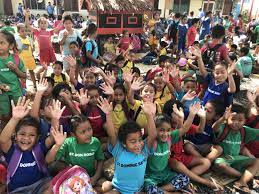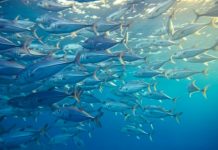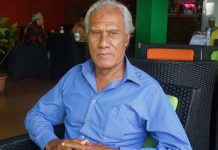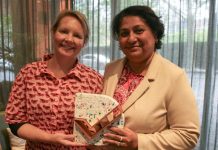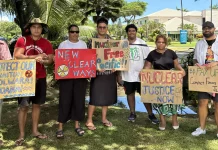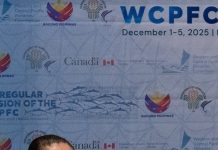By Simona Marinescu, Resident Coordinator of the Cook Islands, Niue, Samoa, and Tokelau
With 147 million children around the world missing half of their in-person instruction over the last two years and around 24 million never returning to school, humanity is experiencing a deep learning crisis. There is no substitute for good education. As the challenges of our time continue to grow, it is impossible to imagine a future of prosperity and peace on a healthy planet without a functional, forward-looking and highly performing education system.
In recognition of the importance of investing in human capital to help overcome the impact of recent crises and restore growth and development, world leaders have gathered this week at the ‘Transforming Education Summit ’ (TES), during the 77th UN General Assembly in New York. The Summit, which is convened by the UN Secretary-General António Guterres, aims to mobilise political ambition, joint action, and solutions for a forward looking and adequately financed quality education system.
In preparation for the TES, UN Country Teams, including our UN multicountry office covering the Cook Islands, Niue, Samoa and Tokelau, have supported governments conduct nation-wide consultations on the urgent need to reimagine education systems and find long-term solutions to the global learning crisis. Convened in partnership with civil society, academia and the private sector, these consultations discussed ways of transforming education systems to ensure younger generations have the knowledge and skills necessary to respond to current and future crises.
According to our Multidimension Vulnerability Index, which I helped develop last year with fellow Resident Coordinators across the region, Small Island Developing States (SIDS) like Samoa, are particularly vulnerable to the effects of global shocks and crises including the COVID-19 pandemic and the war in Ukraine. The resulting disruption to supply chains and spikes in energy and food prices have had a significant impact on Samoa and other SIDS, placing them under high debt distress and deepening their need for development-based support.
The decline in tourism during the pandemic has also severely constrained the fiscal space of these Small Island Developing States, reducing the capacity of SIDS governments to reform education systems and provide viable solutions for remote learning. SIDS are among the countries with the highest number of days without any online teaching during the pandemic.
Small Island Developing States are also experiencing some of the highest rates of young people Not in Education, Employment or Training (NEET). Poverty, lack of nutrition, domestic violence and teen pregnancy are some of the key drivers of low learning performances and early school dropout racing across Samoa and the Pacific. In the island of Nauru 51 percent of young people are not in education, employment or training: the highest across the region. Samoa’s NEET stands at 38 percent.
The lack of income opportunities in domestic markets means that labour migration has become a common solution to filling shortages and tackling joblessness. As a result, reliance on remittance inflows and imported goods and fuels continues to grow.
According to our recent joint policy brief on the structural vulnerabilities impeding progress towards SDG4 in Small Island Developing States, there is a strong positive correlation between increased public investment in education and improved youth NEET rates and overall education outcomes.
It is clear that in order to deliver this much needed economic diversification and enable a digital transformation across the region, we need to support governments of the Small Island Developing States reimagine their education systems.
To address the complex root causes of this learning crisis, as UN Resident Coordinator in Samoa, Cook Islands, Niue and Tokelau, I led a joint UN Country Team effort to mobilise resources from the Joint SDG Fund and other instruments to implement a series of key strategic interventions. Through these coordinated efforts, we have introduced new social protection measures, implemented programmes through the Spotlight Initiative to end domestic violence, including violence against children and developed an Integrated National Financing Framework to improve management of development financing.
Enhancing learning outcomes and transforming Samoa into a knowledge society has been at the heart of our joint interventions over the last few years.
The Samoa-Knowledge Society Initiative (SKS-I) funded by the Government of India through the UN – India Development Partnership Fund has been jointly implemented by UNDP and UNESCO in 2020-2022 with the aim of enhancing digital development and promoting lifelong learning opportunities across the country. Since its launch, the initiative has helped generate more digital resources throughout Samoa, including a free-access digital library and a lifelong learning platform to facilitate online open learning.
Through our new Cooperation Framework (2023-2027) – the joint five-year roadmap for development planning between the UN and the Governments of the 14 Pacific Countries and Territories we assist in the region, we are working to incentivise more young people to continue their education and acquire the professional skills necessary for better paying and more secure jobs. Our Cooperation Framework therefore places a greater emphasis on expanding investment in blue, green and circular economies, accelerating the digital transformation and improving natural capital conservation.
With resources I mobilised from the Joint SDG Fund, UNEP, UNESCAP, and UNESCO are working on enhancing ecosystem services to diversify sources of growth and improve debt sustainability.
Aside from these efforts to strengthen the green economy, we are mobilising resources from the Joint SDG fund to expand access to more nutritious sources of food in order to improve health outcomes and educational performance across Samoa. To help reach this goal, we have supported a range of national dialogues on reimagining food systems and are currently implementing a joint FAO-WFP programme to strengthen food value chains and change consumption patterns.
Although considerable work is underway, Samoa’s progress towards achieving the SDGs will remain slow unless access to more sustainable sources of development financing for mid-income Small Island Developing States is made available.
Redesigning social contracts and expanding access to adequately financed quality education is a prerequisite for building long term resilience in SIDS; and one which our UN team in Samoa is working hard to deliver.
SOURCE:UNSDG/PACNEWS






